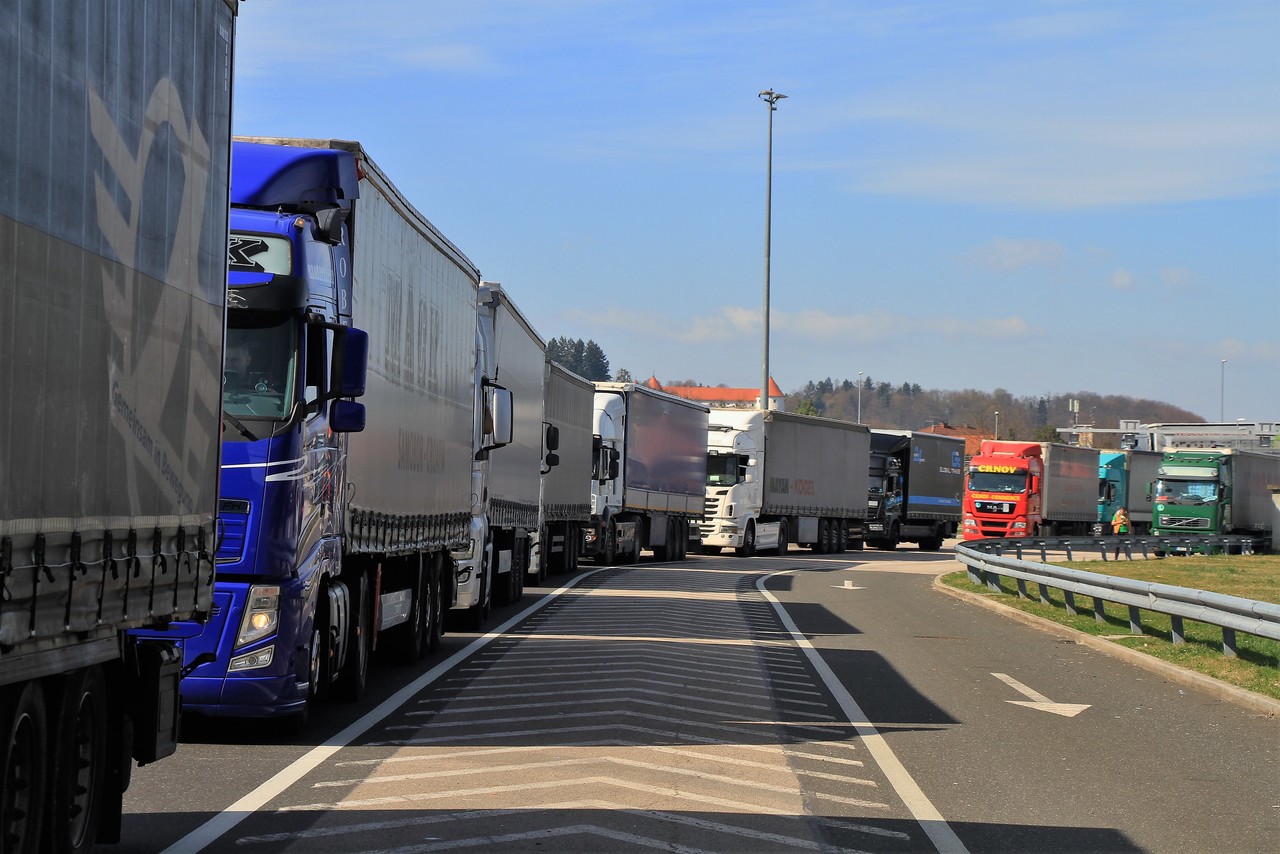Romania, Bulgaria Gain Full Membership Rights in the Schengen Area
On 1 January 2025, Romania and Bulgaria became full-rights members of the Schengen Area, 18 years after joining the European Union. The elimination of controls at their land borders with other EU states was possible after overcoming resistance from Austria. Full integration into the zone could provide a boost to the economic development of the new members. However, the continuing crisis of mutual trust about migration issues between Schengen states, and thus the functioning of the project, remains a challenge.
.png) AA/ABACA / Abaca Press / Forum
AA/ABACA / Abaca Press / Forum
Path to Schengen
Bulgaria’s and Romania’s membership in the Area was provided for in their 2005 EU accession treaties (they joined Union in 2007). It was blocked despite both countries meeting the criteria by the original deadline of 2011, as confirmed by European Commission (EC) reports and highlighted by European Parliament resolutions, eight of which have since been passed.
Without a treaty basis, France, Finland, and the Netherlands extended the technical accession process with additional political conditions. They demanded a positive assessment of the Cooperation and Verification Mechanism (CVM), an EC monitoring instrument imposed on the day of accession due to Romania’s shortcomings in the fight against corruption and judicial reform and, in the case of Bulgaria, also in the fight against organised crime. However, despite the CVM’s favourable reports, various countries maintained their veto in subsequent years, with Austria and the Netherlands particularly intransigent.
The closure of the CVM in September 2023 deprived the blocking states the appearance of objectivity of their arguments—the real reason was the isolationist sentiments of their societies, which were exacerbated with the 2015 migration-management crisis. The aspiring states pointed out, to no avail, that their external EU borders were well-guarded and that the main migration route was via Serbia—of the 230,000 migrants who reached Austria, only 2% entered the EU through Bulgaria, according to its Interior Ministry. In December 2023, the Netherlands withdrew its objection, while Austria agreed to admit both countries to Schengen by air and sea from 31 March 2024. This was mainly symbolic, as Bulgaria, for example, only sent 3% of its goods to other EU countries by air. However, this helped the Austrian authorities to save face with the public, and after the parliamentary elections at the end of September 2024, they too dropped their veto at the December EU Council. Austria’s block was particularly sought by Hungary, which held the presidency in the second half of 2024, as well as Greece, for which the only connection to the rest of the Area is via Bulgaria and Romania.
The Importance of Schengen for Bulgaria and Romania
Both countries considered accession to be one of the main challenges in European politics. To achieve it, they often pursued a conciliatory policy within the EU and avoided disputes with partners. In order to convince Austria and the Netherlands in 2022, they agreed to a reassessment of their ability to join Schengen, which was unprecedented for Member States. Formally on a voluntary basis, they invited a team of EC experts to verify the implementation of the rules on external border protection and police cooperation, readmission, the Schengen Information System, and the Visa Information System. Despite the positive recommendations, only the Netherlands signalled its willingness to withdraw its veto on Romania, which led to a diplomatic crisis between it and Austria. Bulgaria took a compliant stance.
The veto on Schengen accession was perceived by the Bulgarian and Romanian authorities and societies as a sign of second-class EU membership. This was confirmed by an INSCOP poll in spring 2024 in which 60% of Romanians claimed that their country was being blocked even though it met all conditions for membership. This impression was exacerbated by the accession of Croatia to the Area in 2023 despite joining the Union later, in 2013.
The sense of discrimination and the perception that their own governments were subservient to their EU partners fostered extreme moods in both countries. This was demonstrated by the recent elections in Romania. At the end of 2024, in the first round of the presidential elections, which was ultimately cancelled, the far-right and anti-Western candidate Călin Georgescu won, and in the parliamentary elections, Eurosceptic parties won a third of the mandates although they were not represented in parliament at all before the 2020 elections. Similarly, in Bulgaria, the openly anti-European and pro-Russian Revival party has almost tripled its MPs since entering the National Assembly in November 2021 over four consecutive early elections through October 2024.
According to the experience of other EU countries, and in the case of Bulgaria and Romania, full entry into Schengen will have a positive impact on their economies. According to various estimations, Bulgarian GDP could increase by a percentage point per year and Romanian GDP by two in the coming years. A 2024 report by the European Economic and Social Committee indicated that Bulgaria had lost €830 million and Romania €2.41 billion each year due to being outside the Area, mainly due to the cost of waiting on borders and other delivery delays. The average time for clearance of freight transports at the Romanian-Hungarian border (crossed annually by 2.6 million trucks) was 8-16 hours, and at the Romanian-Bulgarian border from 20-30 hours to even 5 days (2 million). A 24-hour delay costs a haulier between about €800 and €2,300. Schengen would also favour an increase in tourist traffic to Romania and Bulgaria and the mobility of their inhabitants and of those bordering Hungary and Greece. The effect of speeding up travel across the Bulgarian-Romanian border thanks to Schengen will, however, be incomplete for now, as there are only two bridges over the Danube and it is not possible to pay the fee online.
Impact on the Schengen Area
The accession of Romania and Bulgaria comes at a difficult time for the zone itself. Since 2015, the Area’s internal crisis has been deepening and many countries still maintain random controls at internal borders, longer than allowed by the Schengen Borders Code. The reintroduction of controls, officially motivated by security concerns and an increase in secondary migration (deep into the EU from Member States on the external border responsible for examining the asylum applications of those who enter there under the Dublin regulations), in practice often is the result of the radicalisation of the domestic political scene. Currently, controls within the zone are maintained by Germany, Slovenia, Italy, Austria, the Netherlands, Norway, Denmark, France, and Sweden.
Random checks at the land border between Bulgaria and Romania will be maintained until mid-2025, despite their full accession to the zone. The reason is the increased threat of smuggling and migration pressure resulting from destabilisation in the Middle East. In the event of increased migration to the EU via the Eastern and Eastern Mediterranean routes leading to Romania and Bulgaria, there is a risk this state of affairs will linger and more controls will be introduced, for example, on the Hungarian-Romanian border.
Conclusions
Breaking the deadlock on Schengen membership may improve the EU’s image in Romania and Bulgaria, provided that the scenario of the temporary closure of the zone’s internal borders is avoided, which will limit the effects of full integration. The finalisation of accession to Schengen will also provide both countries with greater freedom to implement their European policies, as they will not have to fear political blackmail from other countries in this matter. It will also have a positive impact on their economies and facilitate the everyday life of their residents.
From the EU’s perspective, the full accession of Romania and Bulgaria to Schengen is both a symbol of the unity of the Member States and a reduction in the risk of disintegration (or the phenomenon of multi-speed integration), as well as proof of the determination to keep the zone, which has been in a serious crisis for several years. In view of the challenges posed by the security situation in some parts of the zone, Romanian and Bulgarian border guards will have to demonstrate above and beyond the standard that they are able to effectively protect the Schengen external borders in the face of the ongoing destabilisation of the EU’s neighbourhood. An important element in this context will be cooperation in the implementation of solutions strengthening the protection of EU borders, provided for in the Pact on Migration and Asylum adopted last year.
Poland consistently supported the accession of Bulgaria and Romania to Schengen. In doing so, it pointed out the need to maintain the technical nature of the process and the unacceptability of imposing additional political conditions by countries already in the Area. Schengen membership will make it easier for Romania and Bulgaria to communicate with Poland and will foster closer integration of the Central European states, which is in Poland’s interest. However, to be fully effective, it requires the development of a cross-border transport infrastructure, especially the construction of new bridges over the Danube between Romania and Bulgaria.






.png)